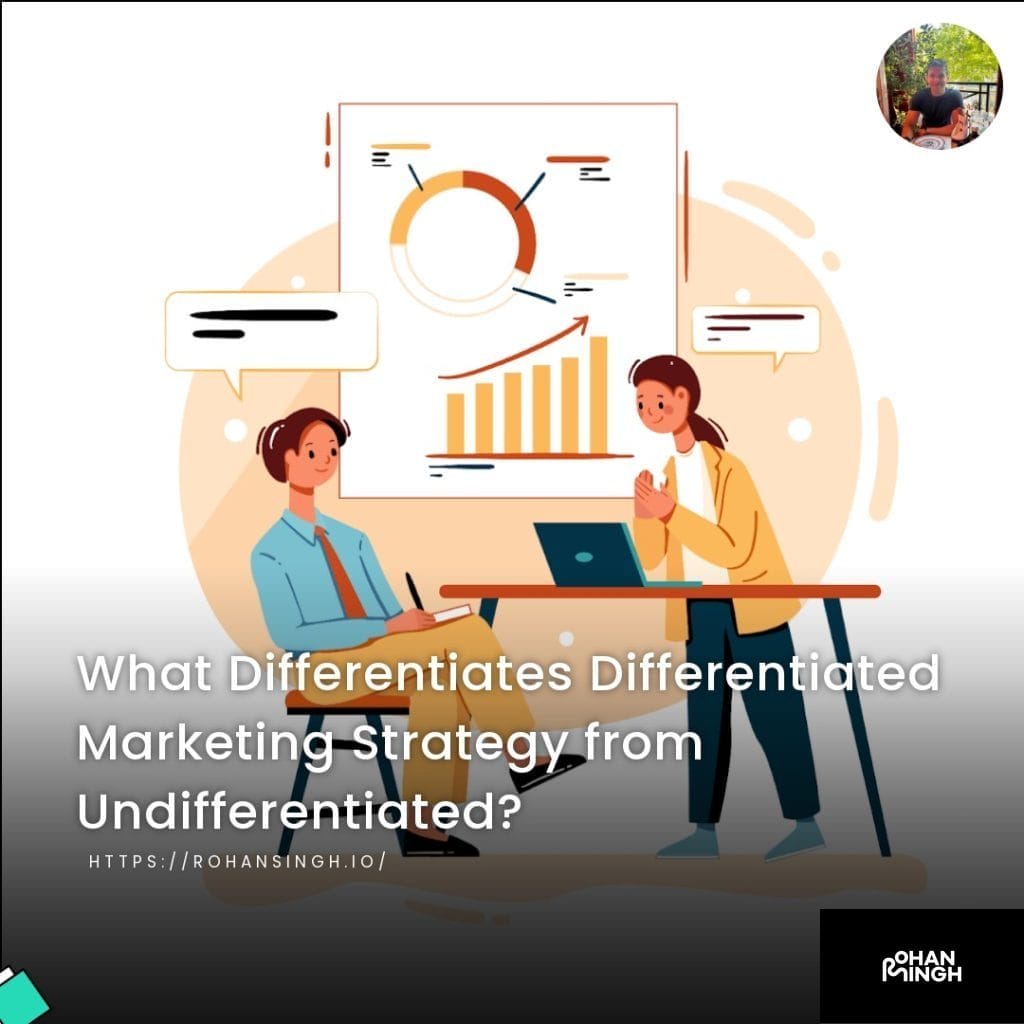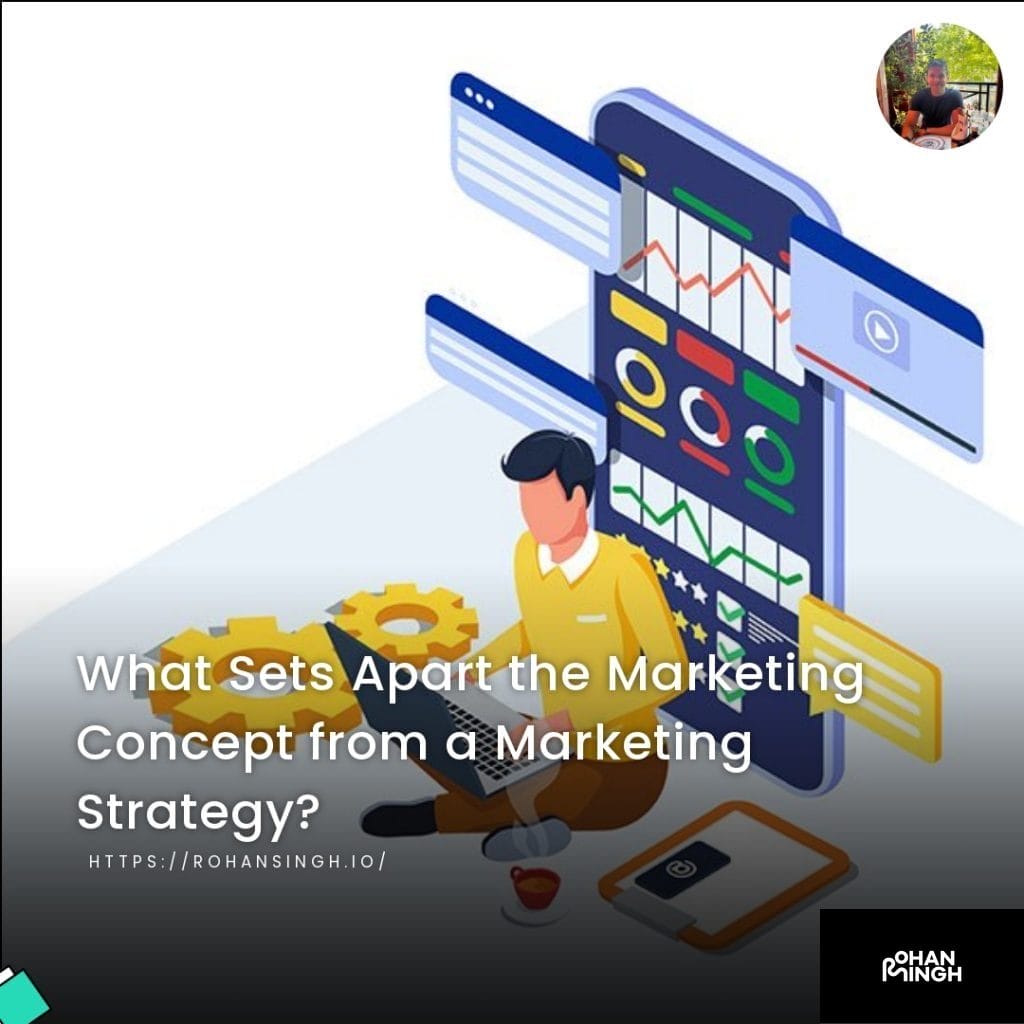Are Your High Schoolers Ready for the AI Wave?
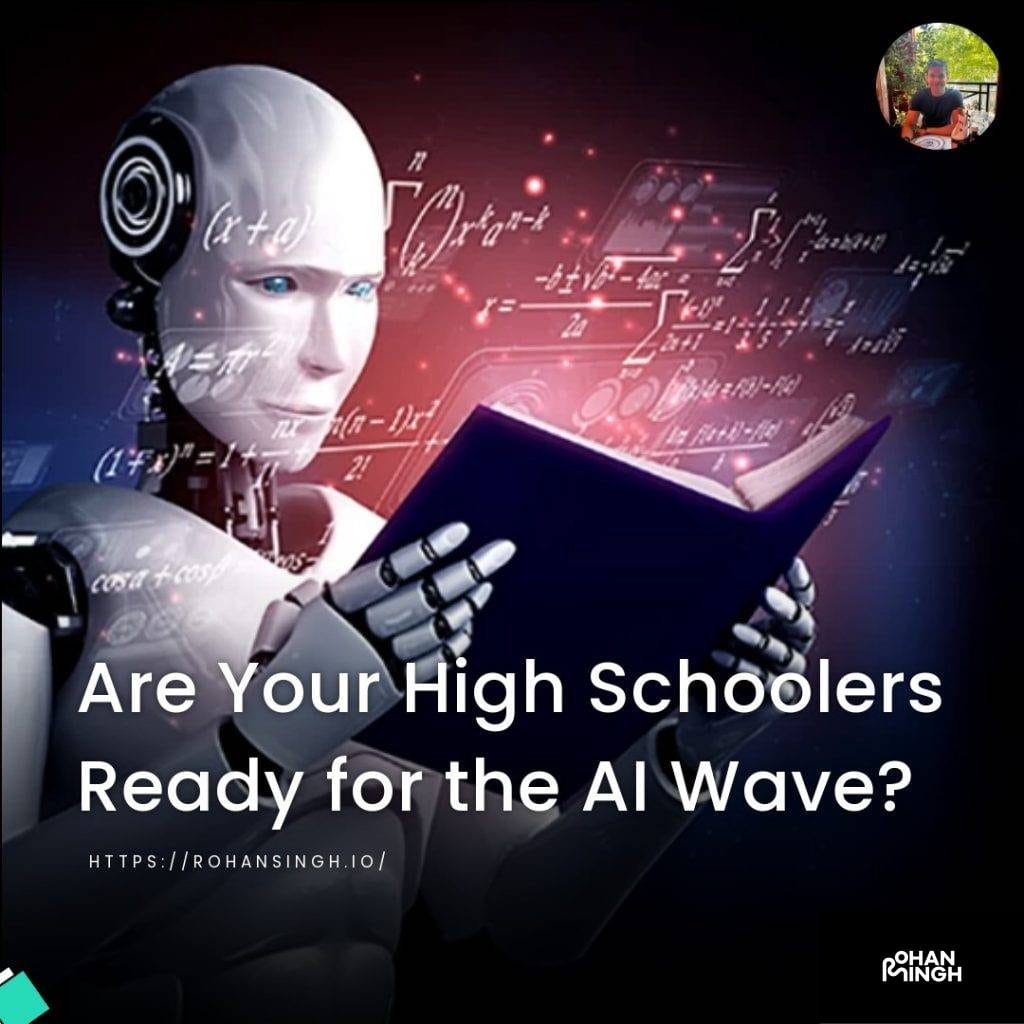
What is Artificial Intelligence (AI)?
Artificial Intelligence (AI) has become an integral part of our daily lives, impacting various industries and revolutionizing the way we work and interact. From personalized recommendations on streaming platforms to voice-controlled virtual assistants, AI is increasingly becoming more pervasive. In this article, we will explore what AI is and how high schoolers can prepare themselves for the rise of this cutting-edge technology.
Table of Contents
ToggleArtificial Intelligence (AI) refers to the simulation of human intelligence in machines that are programmed to think and learn like humans. It involves the development of computer systems capable of performing tasks that typically require human intelligence, such as speech recognition, decision-making, problem-solving, and language translation. AI is driven by machine learning algorithms, which enable computers to process and analyze vast amounts of data to identify patterns, make predictions, and improve performance over time. With AI becoming more sophisticated, it is essential for high schoolers to develop a solid understanding of AI and acquire the necessary skills to thrive in an AI-driven future.
Why is it important for High Schoolers to Prepare for AI?
AI is rapidly transforming industries and becoming an integral part of our daily lives. As the impact of artificial intelligence continues to grow, it is essential that high schoolers are prepared for this AI-driven future. Developing AI readiness among high school students is crucial, considering the increasing demand for AI skills in the job market.
Many industries, from healthcare to education, are already leveraging AI to streamline processes, improve efficiency, and drive innovation. The World Economic Forum predicts that by 2022, AI will create 58 million new jobs. To thrive in this AI-powered world, students need to be equipped with the necessary skills and knowledge.
Introducing AI literacy in schools is the first step towards preparing high schoolers for AI. This can be achieved through two primary approaches. The top-down curriculum development approach involves designing dedicated AI courses and programs that provide students with a comprehensive understanding of AI principles, applications, and implications. The bottom-up incorporation approach integrates AI concepts into existing subjects, enabling students to develop AI skills alongside their regular studies.
In addition to technical knowledge, it is crucial to foster critical thinking skills and ethical considerations related to AI. Students must learn to analyze and evaluate the impact and consequences of AI technology on individuals and society. This will equip them to make informed decisions and navigate the ethical implications of AI in their future careers.
Preparing high schoolers for AI is of utmost importance in today’s world. By fostering AI literacy, critical thinking skills, and ethical considerations, we can empower students to thrive in an AI-driven society and make valuable contributions to the future of work.
Let's talk about your future project!
Eager to collaborate on your upcoming endeavor? Let's explore and ignite the potential of your next big idea, shaping a promising future together!
Technology & the Impact of AI on Industries
As artificial intelligence (AI) continues to advance, its impact on industries is becoming increasingly profound. AI technology is transforming various sectors, including healthcare, education, finance, manufacturing, and many others. With its potential to streamline processes, improve efficiency, and drive innovation, AI has become a vital component of modern businesses. In this era of AI-powered industries, organizations need to ensure they are prepared to harness the benefits of this cutting-edge technology. AI readiness is key to staying competitive and thriving in this rapidly evolving landscape. By equipping themselves with AI knowledge and tools, businesses can tap into the full potential of AI and drive growth in their respective sectors. To be successful in this new era, organizations must adopt AI as a core strategy and develop the necessary skills to navigate the opportunities and challenges it presents.

AI and its Impact on Entire Industries
AI has had a profound impact on entire industries, revolutionizing the way we live and work. From healthcare to education and gaming, AI has transformed these sectors in unprecedented ways. According to recent data, the global AI market is expected to reach $190 billion by 2025, highlighting the widespread adoption and growing influence of AI.
In healthcare, AI has improved patient care and diagnostics, allowing for faster and more accurate diagnoses. AI-powered tools assist physicians in analyzing medical images, identifying patterns, and predicting disease progression. This not only saves lives but also reduces healthcare costs.
The education sector has also benefited from AI, with personalized learning experiences and tailored instruction becoming the norm. AI-based platforms and applications analyze student data and provide targeted recommendations, enhancing student learning outcomes. Students can now engage in project-based learning and receive real-time feedback, promoting critical thinking and problem-solving skills.
Gaming has seen a significant transformation due to AI, with advancements in natural language processing and machine learning. AI-driven characters and opponents provide dynamic and realistic experiences for gamers, enhancing the overall gaming experience.
Looking to the future, the implications of AI on industries are vast. From autonomous vehicles revolutionizing transportation to AI-powered robots transforming manufacturing processes, the potential changes are immense. AI may also create new job opportunities and alter the nature of work, requiring individuals to develop a new set of skills that complement AI capabilities.
AI has already made a significant impact on industries such as healthcare, education, and gaming. As we move forward, it is crucial to embrace AI readiness and understand its potential future implications. Industries must adapt to leverage the power of AI to stay competitive and thrive in this rapidly evolving technological landscape.
Examples of How AI is Already Transforming Industries
AI is already revolutionizing industries across the globe, providing innovative solutions that enhance efficiency and productivity. One significant example is in the field of healthcare, where AI-powered tools are transforming patient care and diagnostics. AI algorithms analyze medical images, enabling faster and more accurate diagnoses while reducing healthcare costs. Additionally, chatbots driven by AI are being used to provide mental health support, offering accessible and anonymous assistance to individuals in need.
In the education sector, AI is enabling personalized learning experiences that cater to the individual needs of students. AI-based platforms analyze student data and provide tailored instruction, enhancing student learning outcomes. This personalized approach promotes critical thinking and problem-solving skills, preparing students for the future workforce. Additionally, AI-driven tools are being employed to provide real-time feedback to students, ensuring their continuous improvement.
The impact of AI extends beyond healthcare and education. Various industries are utilizing AI to streamline processes and improve overall operations. For example, in the customer service sector, chatbots powered by AI are handling basic customer inquiries and providing instant support, increasing efficiency and customer satisfaction. In the financial industry, AI algorithms are analyzing market trends and making informed investment decisions. In manufacturing, AI-powered robots are optimizing production processes, enhancing productivity and precision.
AI is already transforming industries by providing solutions that improve efficiency, accuracy, and customer experiences. Whether in healthcare, education, or other sectors, AI readiness is becoming essential for businesses looking to stay competitive in the digital age.
The Future of AI in Industry
The future of AI in industry is expected to be transformative, revolutionizing the way businesses operate and improving efficiency across various sectors. AI has already made a significant impact in industries such as healthcare, education, mental health, and gaming, and its potential for growth is immense.
In healthcare, AI has the potential to enhance diagnostics, drug discovery, and patient care. AI-powered tools can analyze vast amounts of medical data to identify patterns and make accurate predictions, assisting doctors in diagnosing diseases and developing personalized treatment plans. AI can also improve patient outcomes by enabling remote monitoring, early disease detection, and personalized healthcare recommendations.
In the education sector, AI has the power to revolutionize the learning experience. AI-based applications can provide personalized and adaptive learning experiences, identifying individual student strengths and weaknesses to tailor instruction accordingly. This helps students grasp concepts more effectively and promotes critical thinking and problem-solving skills. AI-powered virtual reality and augmented reality applications can also provide immersive educational experiences, making learning more engaging and interactive.
AI can also play a significant role in mental health by providing AI-driven therapy and support tools. Chatbots and virtual assistants powered by natural language processing can offer accessible mental health support, providing users with resources and personalized recommendations. AI-powered tools can also analyze user behavior and provide valuable insights into mental health trends, enabling early intervention and improved treatment outcomes.
In the gaming industry, AI has already transformed player experiences. AI-powered NPCs (non-playable characters) can exhibit human-like behavior, enhancing the immersion and engagement of gamers. AI algorithms can also be used to develop more advanced and challenging gameplay, adapting to individual player skill levels and preferences.
The increasing adoption of AI in industries such as healthcare, education, mental health, and gaming is expected to bring significant changes. As businesses and organizations become AI-ready, they can leverage the power of AI to streamline operations, deliver more personalized experiences, and drive innovation in their respective fields. The future of AI in industry holds immense potential for growth and endless possibilities for enhancing the way we live, work, and interact with technology.

Preparing Students for the Rise of Artificial Intelligence
As artificial intelligence (AI) continues to advance rapidly, it is crucial for high school students to be prepared for its impact on various industries and daily life. AI is already transforming healthcare, education, gaming, and many other sectors. To ensure that students are ready to navigate this AI-driven future, it is essential to equip them with the necessary skills and knowledge. By focusing on critical thinking, problem-solving, and utilizing AI-powered tools, high schoolers can develop a strong AI readiness and thrive in a world heavily influenced by AI technology.
1. Emphasize Critical Thinking and Problem-Solving Skills:
Teaching high school students critical thinking and problem-solving skills is crucial to prepare them for the rise of AI. With AI’s ability to automate routine tasks, it becomes increasingly important to focus on developing cognitive skills that are uniquely human. Encouraging students to think critically, analyze complex information, and solve problems creatively cultivates their abilities to adapt and innovate in an AI-powered world.
2. Integrate AI-Powered Tools into the Learning Process:
Incorporating AI-powered tools and applications in the classroom can significantly enhance student learning and AI readiness. Tools such as natural language processing-based language models and machine-learning models can provide personalized and adaptive learning experiences. These tools can identify individual students’ strengths and weaknesses, enabling tailored instruction and promoting effective learning. By exposing students to cutting-edge technology like AI, they can gain familiarity, understand its potential, and harness its power for their educational and professional lives.
3. Introduce Project-Based and Experiential Learning Opportunities:
Project-based learning and practical experiences offer valuable opportunities for students to apply AI concepts and develop crucial skills. AI technologies can be integrated into projects, allowing students to solve real-world problems and understand the practical applications of AI. For example, students can design and build AI-powered chatbots or develop machine learning algorithms to analyze data. By engaging in hands-on activities, high schoolers can gain a deeper understanding of AI and develop essential skills for their future careers.
4. Foster Soft Skills and Ethical Considerations:
While AI’s technical aspects are important, high school students should also focus on the development of soft skills and ethical considerations. These skills, including communication, creativity, and collaboration, are valuable irrespective of the rise of AI. Additionally, encouraging discussions around the ethical implications and responsible use of AI fosters a sense of digital citizenship and social empowerment. By emphasizing both technical and soft skills, students can navigate the AI-powered world with a well-rounded perspective.
Preparing high school students for the rise of artificial intelligence requires a holistic approach that encompasses critical thinking, incorporating AI-powered tools, hands-on learning experiences, and fostering soft skills and ethical considerations. By equipping students with the necessary skills, knowledge, and mindset, they can confidently embrace AI’s transformative power and excel in various industries and professions in the AI-driven future.
Education Requirements for Students Pursuing an AI Career
With the rapid growth of artificial intelligence (AI) in various industries, high school students interested in pursuing a career in AI should focus on acquiring the necessary knowledge and skills. The following education requirements are recommended to ensure AI readiness and success in this field.
1. Strong Foundation in Computer Science: Computer science courses are essential for understanding the fundamental concepts and principles of AI. Students should focus on building a solid understanding of programming languages, algorithms, data structures, and computer architecture. These foundational skills will serve as the basis for more advanced AI studies.
2. Mathematics Proficiency: Mathematics plays a crucial role in AI as it involves complex algorithms and statistical analysis. Students should take courses in calculus, linear algebra, probability theory, and statistics. These mathematical skills will enable them to develop and analyze AI models effectively.
3. Engineering Courses: Engineering courses, especially in fields like electrical engineering and software engineering, provide students with practical knowledge and hands-on experience. These courses help students understand how AI is applied in different industries and how to design and implement AI systems.
4. Practical Experience: Gaining practical experience in AI is crucial for a successful career. High school students interested in AI should consider internships, research projects, or participating in coding competitions to develop their skills further. These experiences not only provide hands-on exposure but also help students build a strong portfolio, which is highly valued by AI employers.
High school students interested in pursuing an AI career should focus on a strong foundation in computer science, proficiency in mathematics, and relevant engineering courses. Additionally, gaining practical experience through internships and projects will provide students with a competitive edge in the AI job market. By following this academic path, students can ensure their AI readiness and thrive in this rapidly evolving field.
Teaching Critical Thinking Skills to Prepare Students for the Impact of AI
Teaching critical thinking skills to high school students is crucial to prepare them for the rapid impact of artificial intelligence (AI) in various industries. As AI continues to advance, it becomes essential for students to develop the ability to analyze, evaluate, and interpret the ethical and social implications of this cutting-edge technology.
By cultivating critical thinking skills, students can navigate the complex ethical questions AI poses. They can consider the potential biases of AI algorithms and assess how they may affect marginalized communities. Moreover, critical thinking skills enable students to weigh the benefits and drawbacks of AI applications in healthcare, education, and other areas.
In making informed decisions about AI applications, high school students need to assess their personal and professional implications. They must consider questions such as the potential impact on job markets and the need for new skills. Critical thinking equips students to evaluate the reliability of AI-powered tools and ascertain their suitability for specific tasks.
To facilitate AI readiness, educators can incorporate critical thinking instruction into various subjects. Using case studies and real-world examples, teachers can engage students in analyzing AI’s impact on society and its potential risks. Additionally, incorporating AI-powered tools and applications into the curriculum provides valuable hands-on experience that encourages critical thinking about this transformative technology.
Teaching critical thinking skills helps high school students prepare for the impact of AI by enabling them to analyze ethical and social implications, make informed decisions, and navigate the challenges and opportunities presented by AI applications in their personal and professional lives.
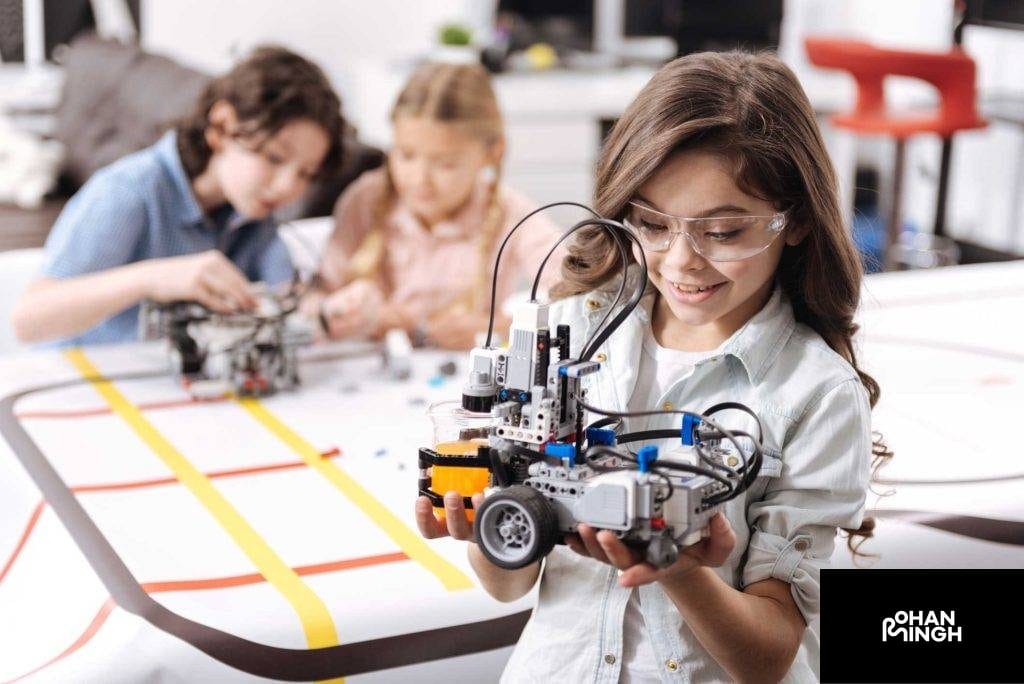
Exploring Cutting-Edge Technology with Middle Schoolers to Foster Interest in STEM Careers
To foster interest in STEM careers among middle schoolers, it is crucial to introduce them to cutting-edge technology. By exposing students to advanced technologies at an early age, educators can spark curiosity and encourage exploration in the field. This early exposure provides students with a solid foundation and prepares them for future career opportunities in the ever-evolving world.
There are several cutting-edge technologies that can be incorporated into classroom activities to engage middle schoolers. One such technology is virtual reality (VR), which allows students to immerse themselves in a virtual environment, enhancing their understanding and retention of complex concepts. For instance, VR can be used to simulate space exploration, taking students on a virtual tour of the solar system.
Robotics is another exciting technology that can captivate middle schoolers. By building and programming robots, students can develop problem-solving skills and logical thinking abilities. It also offers a hands-on experience that is both educational and enjoyable.
In addition, coding platforms and 3D printing can provide students with valuable skills and hands-on learning opportunities. Coding platforms introduce students to computer programming, while 3D printing allows them to bring their designs to life, fostering creativity and innovation.
By incorporating these cutting-edge technologies into classroom activities, educators can create an engaging and dynamic learning environment that inspires middle schoolers to pursue STEM careers. These hands-on experiences with advanced technologies play a pivotal role in building AI readiness and preparing students for the future.
Effective Strategies That Schools Can Use to Implement Artificial Intelligence Programs
As the world becomes increasingly reliant on artificial intelligence (AI), it is crucial for schools to equip their students with the necessary skills and knowledge to thrive in this evolving landscape. Implementing AI programs in schools can not only foster technological literacy but also enhance critical thinking, problem-solving, and collaboration skills. In this article, we will explore effective strategies that schools can use to successfully introduce and integrate AI readiness programs into their curriculum, preparing students for the rise of AI in their personal and professional lives.
1. Embed AI Learning Across the Curriculum:
To effectively prepare high schoolers for the rise of AI, schools should integrate AI learning across various subject areas. For example, incorporating AI tools and applications into STEM classes can enhance students’ understanding of machine learning and data analysis. Similarly, using natural language processing and machine learning tools in language arts classes can help students explore the power of AI in areas like language models and voice recognition.
2. Develop Critical Thinking and Ethical Decision-Making Skills:
When implementing AI programs, it is crucial to emphasize critical thinking and ethical decision-making skills. Schools can engage students in discussions and debates around the impact of AI on society and encourage them to critically analyze AI algorithms and biases. This will enable students to become conscious users of AI and develop a well-rounded understanding of its capabilities and limitations.
3. Foster Project-Based Learning:
Project-based learning offers an ideal framework to integrate AI readiness into the curriculum. By assigning projects that require students to use AI-powered tools and technologies to solve real-world problems, schools can provide students with valuable insights and hands-on experience. This approach not only enhances technical skills but also promotes collaboration, creativity, and problem-solving abilities.
4. Partnerships with Industry Professionals:
Building partnerships with industry professionals and experts in the field of AI can greatly enrich students’ learning experience. These partnerships can provide access to cutting-edge technology, mentorship opportunities, and real-world applications of AI. Collaborations with tech companies, universities, and research institutes can expose students to the latest advancements and future career possibilities in the field of AI.
Implementing effective strategies to introduce and integrate AI readiness programs in schools is essential for preparing high schoolers for the rise of AI. By embedding AI learning across the curriculum, promoting critical thinking and ethical decision-making, fostering project-based learning, and establishing partnerships with industry professionals, schools can create a dynamic learning environment that equips students with the skills and knowledge needed to thrive in an AI-driven world.
Introducing Natural Language Processing and Machine Learning into Classrooms
As we prepare high schoolers for the rise of AI, it is essential to introduce cutting-edge technologies like Natural Language Processing (NLP) and Machine Learning (ML) into classrooms. NLP enables computers to understand and process human language, while ML empowers computers to learn and improve through data analysis.
By incorporating NLP and ML into education, we can offer personalized learning experiences that cater to individual student needs. NLP-based tools and applications can assist students in language arts classes by providing grammar and writing suggestions. Additionally, ML algorithms can adapt content and difficulty levels based on each student’s learning pace and preferences.
Implementing NLP and ML in classrooms has several benefits. Firstly, it enhances student engagement by providing interactive and dynamic learning experiences. Secondly, it promotes critical thinking and problem-solving skills as students analyze and interpret data. Lastly, it prepares students for the future job market, where AI-powered tools and applications will be prevalent.
To ensure AI readiness in high schoolers, it is essential to introduce NLP and ML into classrooms. By leveraging these technologies, we can create personalized learning environments that enhance student learning and cater to their individual needs. Let’s embrace the power of NLP and ML in education and equip our students with the skills required for a future driven by artificial intelligence.
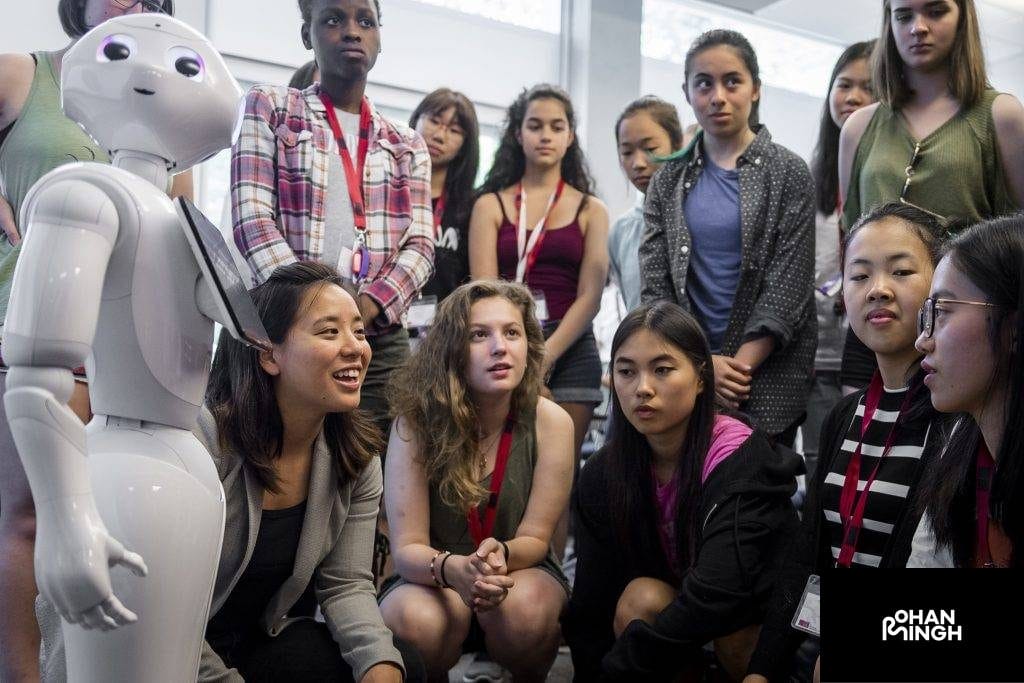
Reflection on the Benefits of Preparing High Schoolers for the Rise of Artificial Intelligence
As we prepare high schoolers for the rise of artificial intelligence (AI), we are equipping them with invaluable skills and opening up a world of possibilities. The benefits of this preparation are immense and far-reaching.
Firstly, there is a growing demand for AI professionals in various industries. According to a recent study by the World Economic Forum, AI will create 58 million new jobs by 2022. By exposing high school students to AI-related content, we are preparing them for rewarding career opportunities in fields such as data science, machine learning, and robotics.
Moreover, AI jobs offer high earning potential. The average salary of an AI professional in the United States is over $100,000 per year, which is significantly higher than the national average. By introducing AI concepts and skills early on, we are empowering students to enter a field that promises financial stability and prosperity.
Teaching AI-related content also ignites students’ passion and curiosity. AI combines various disciplines, including computer science, mathematics, and engineering. By learning about AI, students develop critical thinking and problem-solving skills, fostering a love for learning and innovation. This passion can lead them to pursue advanced degrees or establish their own AI startups.
Ultimately, preparing high schoolers for the rise of artificial intelligence provides them with essential employable skills for the future. AI is revolutionizing industries such as healthcare, finance, and transportation, and employers are seeking individuals with AI expertise. By equipping students with AI knowledge, we are ensuring their readiness to thrive in the job market and actively contribute to the advancements in this rapidly evolving field.
The benefits of preparing high schoolers for the rise of artificial intelligence are numerous. From potential career opportunities to high earning potential and the development of essential skills, the advantages are undeniable. By embracing AI readiness in our educational institutions, we are setting students on a path towards a successful and fulfilling future in the AI-powered world.
Conclusion
It is crucial to prepare high schoolers for the rise of artificial intelligence (AI) due to its significant impact on various industries and the need for students to develop critical thinking skills. We are setting them up for success in a rapidly evolving job market by equipping them with AI readiness.
The adoption of AI in industries such as healthcare, finance, and transportation is transforming the way we work and live. As AI continues to advance, professionals with AI expertise will be in high demand. By introducing high schoolers to AI concepts and skills, we are ensuring their readiness to thrive in these industries and contribute to their growth.
Furthermore, AI promotes critical thinking skills, which are essential in navigating the complexities of the digital age. AI-powered tools, such as natural language processing and machine learning, can be incorporated into classrooms to facilitate personalized learning experiences and project-based learning. This not only enhances students’ understanding of AI but also develops their problem-solving and analytical abilities.
To implement AI programs effectively, schools can collaborate with industry professionals, leverage cutting-edge technology, and provide opportunities for hands-on experiences. By integrating AI into the curriculum, high schoolers will be better prepared for future careers and equipped with the skills needed to adapt to the ever-evolving technological landscape.
In conclusion, preparing high schoolers for the rise of artificial intelligence is paramount. By fostering AI readiness and honing critical thinking skills, we are empowering students to thrive in a digital future and contribute to the advancement of industries.
FAQs
What is the importance of preparing high school students for artificial intelligence?
High school students need to be prepared for artificial intelligence, as it is increasingly being integrated into various industries and professions. By introducing them to AI concepts and skills, we are equipping them with the necessary knowledge and abilities to thrive in the future job market.
How can AI promote critical thinking skills among high schoolers?
AI-powered tools, such as natural language processing and machine learning, can be integrated into classrooms to foster personalized learning experiences and project-based learning. This not only enhances students’ understanding of AI but also develops their problem-solving and analytical abilities.
What resources are available for educators and students to explore AI?
Educators and students can explore AI through various resources such as AIClub, AI4K12, DayofAI.org, Google AI Experiments, and Wombo Dream. These platforms offer a range of educational materials, workshops, and engaging activities to help individuals develop an understanding of AI and its applications.
How can schools effectively implement AI programs?
Schools can effectively implement AI programs by collaborating with industry professionals, leveraging cutting-edge technology, and providing opportunities for hands-on experiences. By integrating AI into the curriculum, high schoolers can acquire the skills needed to adapt and excel in the ever-evolving technological landscape.
Similar articles about Acquisition Strategy:
Ready to Plan Your Dream Trip with ChatGPT Vacation Planner?, Want to Experience the Magic of Third-Party ChatGPT Plugins?, How can Efficient Project Management Boost Your Success?, Looking to Boost Your YouTube Views? Use ChatGPT for Top-Notch Video Optimization!
Are You Leveraging SEO Audits to Win More Clients?, Ever Thought of Starting an AI Career? Discover How Today!, Can SEO Propel Your Store to 1 Million Monthly Visitors?, How Can Google Bard Supercharge Your SEO Content Strategy?
Eager to Multiply Local Business Reviews from Travelers?, Which is the Best AI Chatbot? A Head-to-Head Comparison of ChatGPT, Claude 2, Bing Chat, and Google Bard, Want a Game-Changer in SEO? Have You Tried AI and Chrome Extensions Yet?,
Can AI-Powered Growth Spark Your Business Acceleration and Digital Transformation?, Ready to Achieve SEO Mastery and Stand Out in the Digital World?, Ready to Dominate the Future? How Can You Kickstart Your AI Data Science Career Today?, Want to Dominate Google SERP? Learn How to Supercharge Your Content Strategy!, Have You Explored the ChatGPT Android App Yet?
Ready to Supercharge Your Business? Harness the Power of Always-On PPC Strategy Now!, Are You Choosing the Right Digital Agency for Your Business? Discover the 5 Key Considerations!, How Can AI Marketing Tools Transform Your Social Media Career?, How Can You Dominate YouTube Rankings with SEO in 2023?
Struggling with Competitive Organic Keywords? Try Our Advanced Keyword Domination Strategy!, Want to Dominate Google Page Ranking? Discover the Secrets Here!, Can You Transform Unexpected Publicity into Opportunity with PPC?, Want to Create High-Converting Emails Fast? Have You Tried AI Copywriting & ChatGPT?
How Can You Thrive in the AI Era? A Guide to AI Survival, Want to Dominate Google's First Page? Discover the Essential SEO Ranking Factors, How to Implement Generative AI Tools Safely and Ethically? Navigating the Ethical AI Implementation Quandary, Ready to Scale Your Career? How to Learn Growth Marketing in 6 Transformative Steps
Ready to Launch Your Career? How to Land Your First Digital Marketing Job: A Must-Read Guide for Freshers!, Want to Safeguard Your Paid Search Campaigns? Discover Proven Strategies Here!, Looking to Boost Your WordPress SEO with AI? Here are 12 Tools You Can’t Miss!, Want to Boost Your Google Rankings? Master SEO Strategies to Hit #1 Now!
How Can AI SEO Revolutionize Your Online Strategy?, Are Your High Schoolers Ready for the AI Wave?
What Marketing Strategy Did Cheetos Employ for Plants vs. Zombies Collaboration?
Rohan Singh | May 1, 2024 | Acquisition What Marketing Strategy Did Cheetos Employ for Plants vs. Zombies Collaboration? Background on Cheetos Cheetos, a popular brand of cheese-flavored snacks, has made a name for itself with its bold and playful marketing strategies. Known for its irreverent and creative campaigns, Cheetos has consistently found unique ways […]
What Marketing Strategy Did Cheetos Employ for Plants vs. Zombies Collaboration?
Rohan Singh | May 1, 2024 | Acquisition What Marketing Strategy Did Cheetos Employ for Plants vs. Zombies Collaboration? Background on Cheetos Cheetos, a popular brand of cheese-flavored snacks, has made a name for itself with its bold and playful marketing strategies. Known for its irreverent and creative campaigns, Cheetos has consistently found unique ways […]
What Differentiates Differentiated Marketing Strategy from Undifferentiated?
Rohan Singh | April 30, 2024 | Acquisition What Differentiates Differentiated Marketing Strategy from Undifferentiated? Definition of Differentiated Marketing Strategy A differentiated marketing strategy is a targeted approach that focuses on creating unique products or services to meet the specific needs and preferences of different customer segments. It recognizes that customers have diverse tastes, preferences, […]
What Sets Apart the Marketing Concept from a Marketing Strategy?
Rohan Singh | April 29, 2024 | Acquisition What Sets Apart the Marketing Concept from a Marketing Strategy? Definition of Marketing Concept The marketing concept is a philosophy that places the customer at the center of all marketing activities. It focuses on understanding the needs and wants of the target market and delivering value to […]
Which promotional mix strategy targets market channel members?
Rohan Singh | April 28, 2024 | Acquisition Which promotional mix strategy targets market channel members? When it comes to promoting a product or service, companies utilize various strategies to reach their target audiences. One key strategy that directs marketing efforts toward market channel members is known as trade promotion. Trade promotion is a type […]
Should charter schools adopt regional or national marketing strategies?
Rohan Singh | April 27, 2024 | Acquisition Should charter schools adopt regional or national marketing strategies? Purpose When it comes to marketing strategy in the field of charter schools, two broad approaches can be taken: regional and national. Each approach has its purpose and benefits depending on the goals and aspirations of the charter […]
Topics :
Share :


